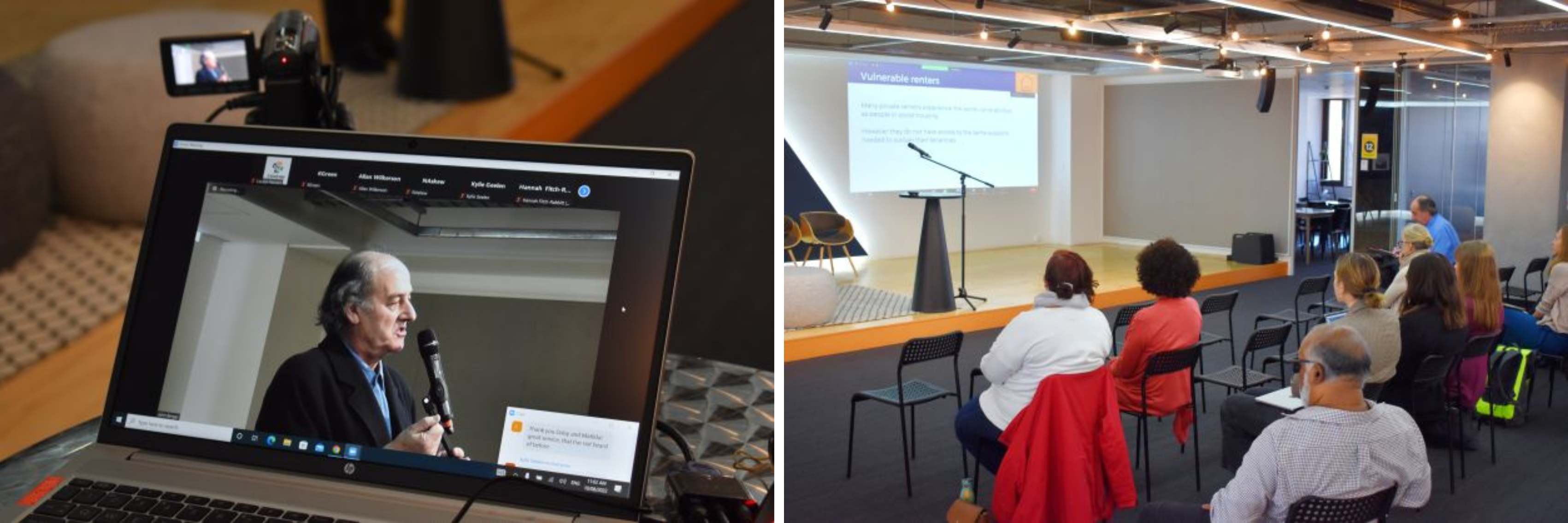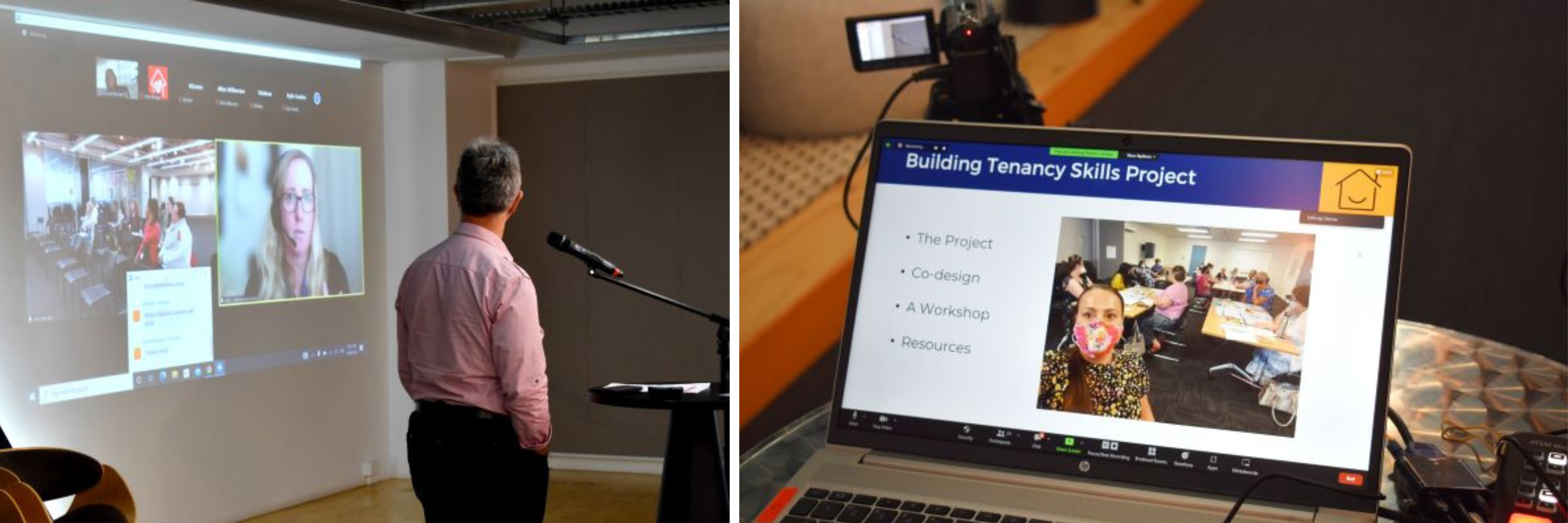Pulse Session 2022: Role of private rental in reducing risk of homelessness and mental ill-health
Most people with lived experience of mental health conditions rent in the private rental sector, although many will experience an exacerbation of mental ill-health due to the insecure and unaffordable nature of the tenure, placing them at risk of homelessness.
People with mental health conditions often face challenges in accessing and sustaining this type of accommodation. Due to rising rental costs, private rentals are increasingly unaffordable for people receiving the disability support pension and other income support payments, as well as people who receive income from work, and in WA there is a major shortage of affordable private rental housing.
In WA, currently there are no specialist mental health housing services and programs that support people with mental health issues to access and sustain private rental housing and integrate that with other types of support, such as rental subsidies, mental health clinical support and employment support. This is a major gap.
The August Pulse Session jointly organised by the WA Alliance to End Homelessness and the WA Association for Mental Health (WAAMH) was attended by more than 40 participants and featured three speakers who described work being undertaken in Victoria and WA to support people in private rentals to reduce the risk of homelessness and mental ill-health.
Watch the video presentation:
Wellways Australia project coordinator Haley Bowman spoke about the Doorway Program, a private rental supported accommodation service which provides integrated housing and recovery support for people with lived experience of persistent mental ill-health who are at risk of or experiencing homelessness to live in the private rental market.
The Doorway program, developed and implemented by Wellways Australia in four regions in Victoria, is the only evidence-based mental health supported accommodation program in Australia based on Housing First Principles that operates in the private rental market.
Ms Bowman described how the program supports mental health consumers who are clients of public mental health services to choose, access and sustain their own private rental accommodation and provides mental health consumers with housing and psychosocial support while providing time limited rental subsidy, housing establishment, landlord incentives package, employment support, brokerage and tenancy support. Participants pay 30 percent of their income and Commonwealth Rent Assistance directly towards their private rental housing and the NGO pays the difference as a rental subsidy for up to 18 months.

Shelter WA project manager Dr Donna Turner described findings of the Building Tenancy Skills Project, a joint project of Shelter WA and People with Disabilities WA (PWDWA) which aims to build the skills and capacities of people with disabilities to be more confident about their rights and responsibilities as tenants. Some key issues that emerged from Dr Turner’s presentation were:
- Around 70% of people with psychosocial disabilities are housed in private rentals
- The changing nature of private rentals including the shortage of affordable rentals, the high cost of rent and living costs and the insecure nature of private rental increases the vulnerability of people with psychosocial disorders
- People with psychosocial disabilities in private rentals don’t have access to the same level of support as tenants in public and community housing
- There is a growing cohort of older people with psychosocial disabilities living in private rentals

Red Cross WA’s Daisy Ashworth and Matilda Martin discussed the role of private rental support services funded jointly by the federal and state governments, such as the Red Cross Private Rental Tenancy Support Service, in supporting people experiencing mental ill-health to sustain their tenancy and reduce the risk of eviction and homelessness. Some key issues that emerged from their presentation were:
- 31% of the clients of the Red Cross service have a mental health diagnosis
- As well as people with existing mental health conditions, another cohort the service supports are people who develop mental health issues because of their experience living in private rentals
- These people do not have mental health issues prior to living in private rentals but the circumstances and conditions of private rental causes significant levels of distress and contribute to mental health issues e.g., they must give up their pet, they have to spend a large proportion of their income just to pay the rent, they have significant rent arrears, they live with the fear of eviction or have been evicted
To conclude the session WAAMH projects lead Colin Penter spoke about some of the developments taking place to address the issues raised in the session including:
- WAAMH has proposed and is advocating for the funding of a pilot of the Doorway model in WA.
- WAAMH continues to advocate for the development of a specialist private rental and mental health support service for people living in private rentals
- The Make Renting Fair Alliance, comprising a range of peak bodies, non-government organisations and private rental tenants is mounting a campaign to convince the WA Government to introduce major changes to the Residential Tenancy Act to improve the situation for tenants in private rentals
- There is a need for more secure and increased funding to expand and extend the federal and state government funded Private Rental Tenancy Support Services that currently operate in metropolitan WA and the Great Southern region
- The crisis in the private rental market in regional WA and the need for localised solutions has resulted in the formation of local advocacy and support groups. An example is Just Home Margaret River.
Photos courtesy of WA Alliance to End Homelessness